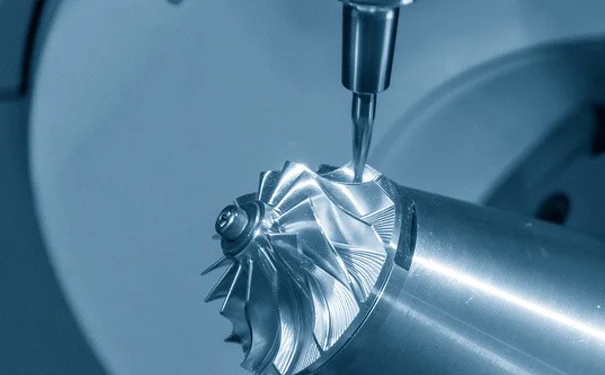Email: katrina@qidumetro.com Phone: (+86) 134 1323 8643
Overcoming Machining Challenges with Digitizing Touch Probes: A Customer’s Case Study
In the competitive world of manufacturing, maintaining consistent precision and quality is paramount to success. Our customer, achieving this goal became particularly challenging when dealing with complex curved workpieces with digitizing touch probe. The intricate contours of these parts demanded a high degree of accuracy, leaving little room for error. To address this challenge, the customer turned to the innovative technology of digitizing touch probes, transforming their machining process and ensuring the production of consistently high-quality parts.
The Challenge: Ensuring Precision in Complex Machining
The customer’s primary challenge lay in accurately machining complex curved workpieces. These parts, often featuring intricate contours and tight tolerances, posed a significant risk of deviation from the ideal model, potentially leading to scrap parts and costly rework. Traditional machining methods, while effective for simpler geometries, fell short in meeting the demands of these intricate components.
The Solution: Embracing the Power of Digitizing Touch Probes
Seeking a solution to their precision woes, the customer explored the capabilities of digitizing touch probes. These sophisticated tools, seamlessly integrated into their CNC machining centers, offered the promise of real-time precision and error correction throughout the machining process.
Implementation of Digitizing Touch Probe: A Step-by-Step Guide
To fully harness the potential of digitizing touch probes, the customer meticulously implemented the following steps:
- Probe Selection and Installation:The appropriate digitizing touch probe was selected based on the specific requirements of the machining process and workpiece dimensions. The probe was then carefully installed into the CNC machine, ensuring proper alignment and calibration.
- Process Integration:The probe’s functionality was integrated into the CNC program, allowing for seamless communication between the probe and the machine controller. This integration enabled real-time data acquisition and automated error correction.
- Workflow Optimization:The machining workflow was optimized to incorporate the probe’s capabilities. This involved establishing clear procedures for probe utilization, including data collection, analysis, and error correction cycles.
- Opleiding en ondersteuning:Comprehensive training was provided to machine operators, ensuring they were fully equipped to operate the probe effectively and interpret the data it generated. Ongoing technical support was also established to address any challenges or questions that arose during implementation.
The Outcome: Precision Machining Elevated
The implementation of digitizing touch probes transformed the customer’s machining process, delivering a range of tangible benefits:
- Verbeterde presisie:The probes enabled the consistent achievement of precise dimensions, even for complex curved workpieces. This resulted in a significant reduction in scrap parts and rework, saving the customer time and money.
- Improved Quality Control:Real-time data acquisition and error correction capabilities ensured that every part produced met the highest quality standards. This enhanced quality control instilled confidence in the customer’s products and strengthened their reputation in the market.
- Streamlined Workflow:The integration of probes into the machining workflow streamlined operations, reducing downtime and improving overall efficiency. This allowed the customer to meet production targets more effectively and respond to customer demands with greater agility.
Conclusion: A Testament to Technological Innovation
The customer’s experience serves as a testament to the transformative power of digitizing touch probes in precision machining. By embracing this innovative technology, they were able to overcome the challenges of machining complex curved workpieces, achieving new levels of accuracy, quality, and efficiency. As the demand for precision machining continues to grow, digitizing touch probes are poised to play an increasingly crucial role in shaping the future of manufacturing, empowering companies to produce high-quality parts consistently and cost-effectively.
Katrina
Mechanical Sales Engineer with 10+ years of experience in the manufacturing industry.Skilled in developing and executing sales strategies, building relationships with customers, and closing deals. Proficient in a variety of sales and marketing tools, including CRM software, lead generation tools, and social media. I'm able to work independently and as part of a team to meet sales goals and objectives. Dedicated to continuous improvement and learning new sales techniques.

